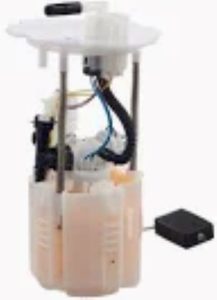Fuel pumps are generally replaced following several key indicators which are directly affecting the performance of a vehicle. With a fuel pump that does not function properly, you might notice a significant decrease in power because the fuel pressure falls short of what your engine requires, especially when driving far longer. And this problem can become even more severe as everything points to fuel pumps starting on their road degradation around 100,000 miles leading to lower effective usage and random stall-outs. If the internal components of the pump, including its armature and commutator, which are wear parts, exhibit signs of wear they can come into contact with each other metal-to-metal thereby causing debris to be left behind that may clog up fuel flow...
Failing fuel pumps are often the culprit when a vehicle has high mileage and needs very expensive repairs — the unit itself can cost anywhere from $200 to $1,000 depending on make and model. In addition to this, an inefficient pump can increase drivers' fuel costs as up to 15% of the energy fed into a vehicle can simply be used driving a pump. Another thing that contributes to clogging of the fuel pump filter is the sediment in bad gasoline, which will results in reduced fuel delivery and engine performance inconsistency. If you dont do this, most experts say the filter should be changed before every 20k miles to prevent overworking the pump by clogging it up.

The other sign that a fuel pump is going to need replacing soon is general engine overheating and sweating, caused by the same issue as in point 4 above. Vapor lock can disrupt the fuel supply, even if your engine is hot enough to evaporate vapor off a bowl of soup on a 100-degree day or after a long drive. ”A fuel pump that has a hard time holding pressure especially in warmer temps is a red flag,” warns AutoXpress mechanic Tom McWilliams, which can mean the difference between one cool burnout and an afternoon of cold showers.
When the pumps begin to fail they start to make strange noises which some describe as a whining coming from the pump (especially if your gas tank is on empty). These noises occur due to limited fuel passage and reflect wear not only in the pump but also the internal components. One is a loud clicking, that some in the industry, including manufacturers, say can easily be detected and indicate an impending failure. Failure to pay attention to such signs could mean vehicles breaking down on the side of the road when least expected, creating numerous safety and financial risks for drivers.
Awareness about the role of a fuel pump and its maintenance allows them to work optimally. So it is that the pump which hold the fuel under pressure—pressure should be 30-80 psi for most vehicles—is replaced once its pressure drops to penalty. According to industry tests, older pumps that are even slightly below optimum pressure can decrease engine power by up to 25% -- meaning you burn more gas just to keep your car moving -- leading automotive service experts everywhere to advise replacement (not from the rubber end) as soon as possible.
Refer to trusted resources and automotive experts for more guidance into selecting the perfect Fuel Pump, tailored based on vehicle model and driving habits.